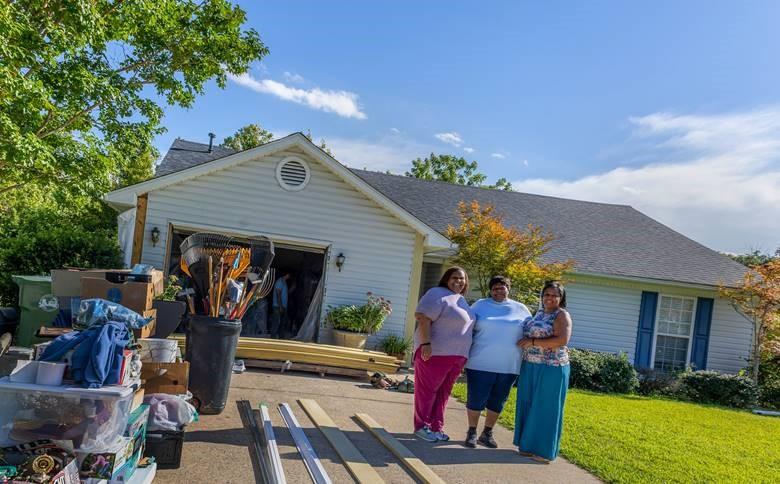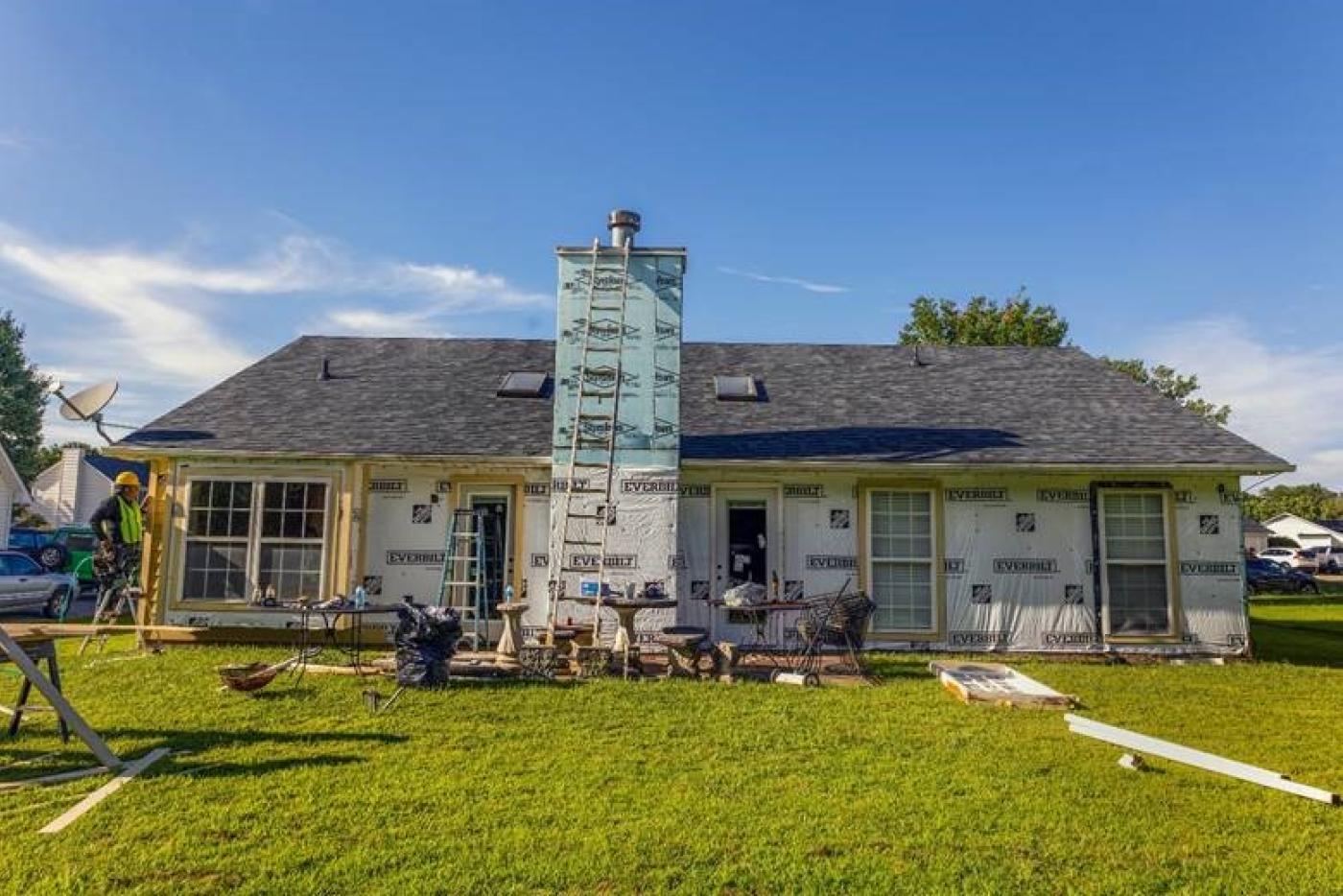Renew NC, North Carolina’s long-term disaster recovery effort, today finished making storm-related repairs to the first home approved for assistance through the Renew NC Single-Family Housing Program (SFHP). Renew NC is funded by a federal Community Development Block Grant-Disaster Recovery (CDBG-DR) from the U.S. Department of Housing and Urban Development (HUD).
North Carolina is the first state affected by Hurricane Helene to start its home renovation and reconstruction program. In fact, North Carolina is the fastest state in more than a decade – since Hurricane Sandy – to begin rebuilding homes after a major hurricane using HUD CDBG-DR funding.
“Rebuilding safe and sustainable housing is crucial to helping western North Carolina get back on its feet,” said Governor Josh Stein. “Completing our first home is an important milestone in the Hurricane Helene recovery process. I applaud my team for moving at record speed. Let's keep swinging hammers and getting more families back home.”
More than 1,900 applications have been received by the program, which is administered through the North Carolina Department of Commerce’s Division of Community Revitalization (DCR) to provide assistance to repair or rebuild eligible homes damaged or destroyed by Hurricane Helene.
A public dashboard tracking the progress of the applications is now available at the RenewNC.org website. Updated daily, the dashboard shows the total number of applications received, applications by county, and applications at various levels of review and eligibility.
The Renew NC Single-Family Housing Program aims to address any remaining long-term recovery needs of homeowners in western North Carolina, using $807 million in federal funding. The program prioritizes low- to moderate-income (LMI) families in communities that experienced significant damage from the most destructive storm in state history. Homeowners in 29 counties may be eligible to apply for assistance.
“We know that housing is the key to rebuilding communities impacted by Helene,” said Commerce Secretary Lee Lilley. “We are committed to getting our neighbors back home as quickly and safely as we can, and Renew NC is essential to that effort.”
Matalene Waters, the first applicant approved for assistance through the SFHP, is excited and relieved to see the final repairs to her home completed. Born and raised in western North Carolina, Waters has resided in the region for nearly 30 years and said Hurricane Helene not only left her home in disrepair but took an emotional toll as well:
“When Helene came, the flood came down the street and into the backyard, and it came all the way up to the [outdoor] light sockets. It flooded all of my furniture and appliances, so we had to destroy all of that. You don’t realize how much it affects your mind. You’re thinking you're okay, but you’re not.”
Her daughter, April Stewart, stepped in to support her mother during this difficult time and took the lead in signing her up for additional help through the Renew NC SFHP. Stewart says she heard about the program at work, from her neighbor, and from other friends and family who were concerned about her mother.
“My mom is my hero. To get her back into her home, that was the plan. It wasn’t about relocating, uprooting her. This is where her roots are. This is where my children’s memories are. To get her back into her home, that was the priority.”

Matalene Waters, shown center, with her daughter, April (left), and goddaughter, Tangela (right).
“With the construction phase of our Single-Family Housing Program underway, we’re looking forward to helping restore housing stability across the region,” said Division of Community Revitalization Deputy Secretary and native western North Carolinian Stephanie McGarrah. “We can’t understate the importance of this work.”
Western North Carolinians are being employed at Renew NC call centers and mobile pop-up sites, as well as on the canvassing teams going into neighborhoods to identify homeowners who may be eligible for assistance but have not yet applied. "The “neighbors helping neighbors” approach increased the number of applications received from 1,000 as of August 12 to more than 1,900 as of August 27."
Applications are open to homeowners in Alexander, Alleghany, Ashe, Avery, Buncombe, Burke, Caldwell, Catawba, Clay, Cleveland, Gaston, Haywood, Henderson, Jackson, Lincoln, Macon, Madison, McDowell, Mitchell, Polk, Rutherford, Surry, Swain, Transylvania, Watauga, Wilkes, Yadkin, and Yancey counties, plus ZIP code 28214 in Mecklenburg County.
Homeowners seeking more information about the Renew NC Single-Family Housing Program can visit RenewNC.org, call (888) 791-0207, or visit an in-person location. Program staff can help determine if the homeowner qualifies for assistance. The Renew NC app is also available for download on the Google Play Store and Apple App Store.
Renew NC programs are funded through a Community Development Block Grant Disaster Recovery (CDBG-DR) grant from the U.S. Department of Housing and Urban Development (HUD). Of the total $1.4 billion in CDBG-DR funding allocated to the state for western North Carolina recovery needs, $807 million supports the Renew NC Single-Family Housing Program.
Later this year, Renew NC will introduce two additional housing programs: Multi-Family Housing for small rental projects with seven or fewer units and larger projects with eight or more, and Workforce Housing for Ownership for the development of homeownership opportunities that are affordable to broader segments of the workforce. Infrastructure and Economic Revitalization programs will also be launched in the coming months.
More information about the administration of the Renew NC programs can be found on the Division of Community Revitalization’s website at CommerceRecovery.nc.gov.

